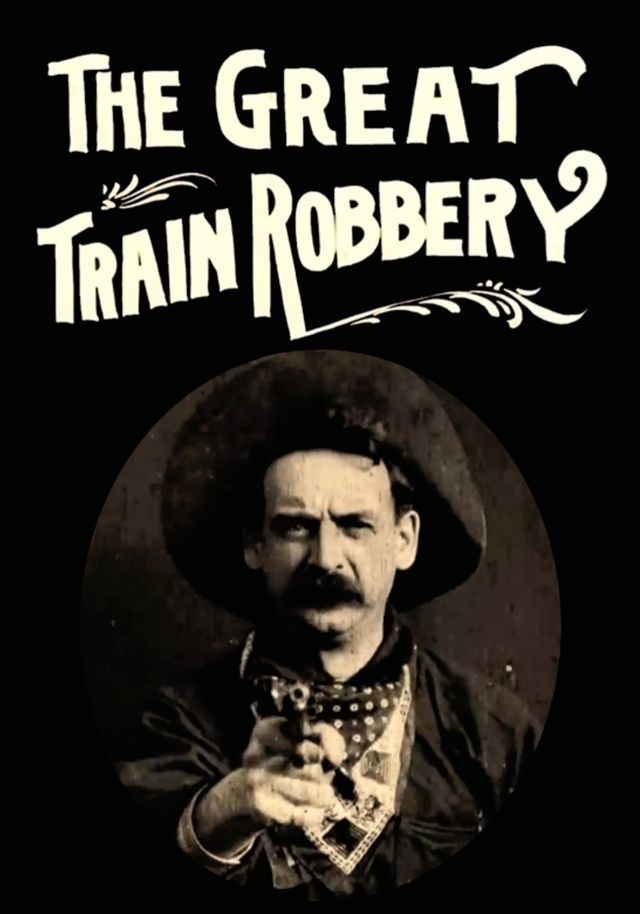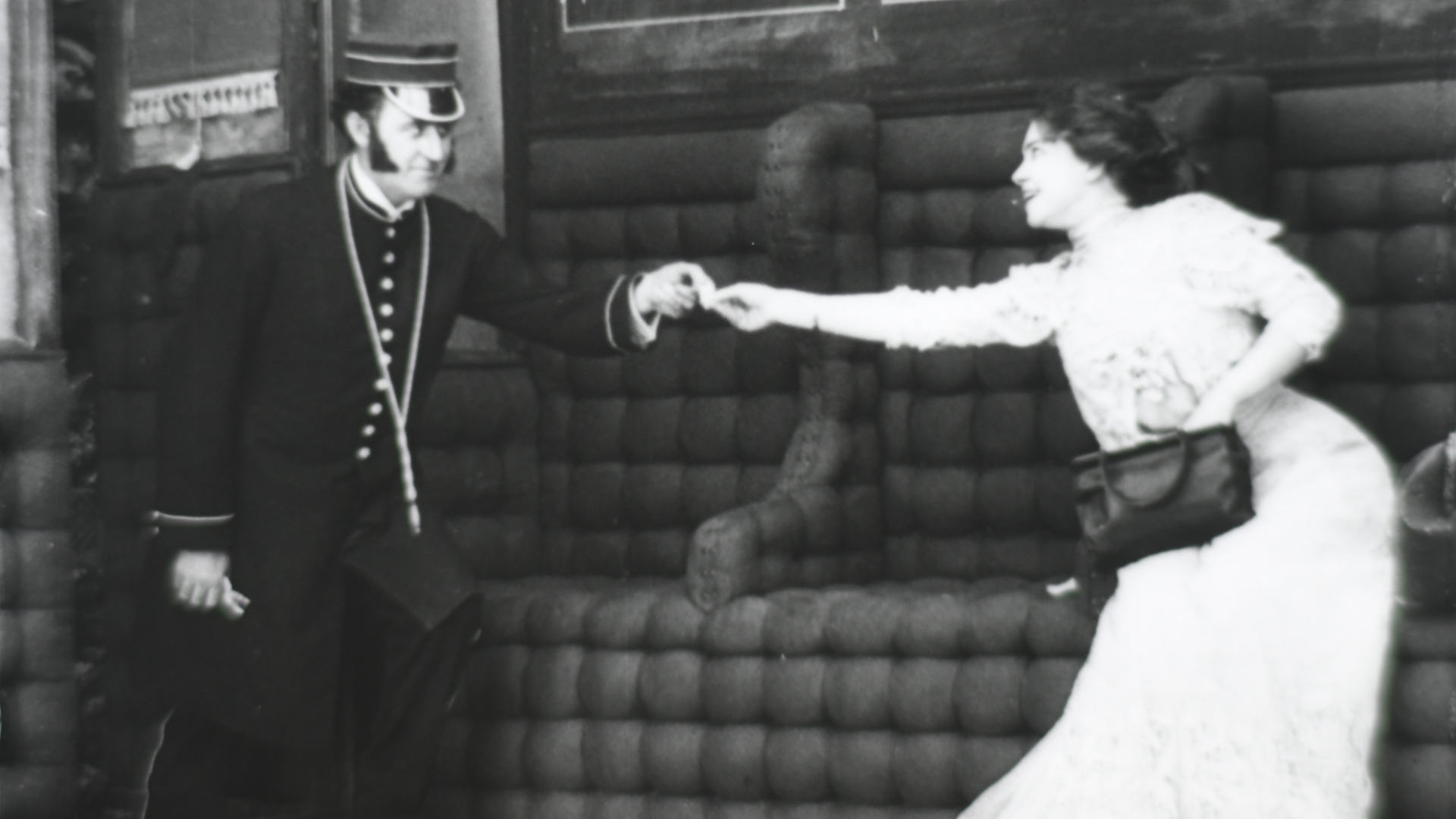Lecture TRAINS IN THE EARLY CINEMA + The Great Train Robbery (1903) | The Adventuress (1910)
Runtime: 65 min.
Lecture by film expert and researcher from the State Film Fund of Russia, Natalia Mokrushina, on how the train – the “iron horse” of the 19th century – influenced the cinema.
Lecture: 40-50 minutes.
Film screenings will be accompanied by a tapeur.
Lecture: 40-50 minutes.
Film screenings will be accompanied by a tapeur.
Большое ограбление поезда
The Great Train Robbery
Year: 1903
Country: USA
Director: Edwin S. Porter
Cast: A.C. Abadie, Gilbert M. 'Broncho Billy' Anderson, Donald Gallaher, George Barnes, Justus D. Barnes, Walter Cameron Donald Gallaher Little Boy(uncredited)
Genre: short, action, adventure
Language: no dialogue
Runtime: 9 min.
Age: 16+
Country: USA
Director: Edwin S. Porter
Cast: A.C. Abadie, Gilbert M. 'Broncho Billy' Anderson, Donald Gallaher, George Barnes, Justus D. Barnes, Walter Cameron Donald Gallaher Little Boy(uncredited)
Genre: short, action, adventure
Language: no dialogue
Runtime: 9 min.
Age: 16+
A group of bandits stage a brazen train hold-up, only to find a determined posse hot on their heels.
Awards & Festivals:
National Film Preservation Board, USA - National Film Registry
Приключение в английском вагоне
The Adventuress
Year: 1910
Country: USA
Director: Tom Ricketts
Cast: Adrienne Kroell, J.H. Gilmour
Genre: short, drama
Language: no dialogue
Runtime: 6 min.
Country: USA
Director: Tom Ricketts
Cast: Adrienne Kroell, J.H. Gilmour
Genre: short, drama
Language: no dialogue
Runtime: 6 min.
The story is founded on a real episode, a chapter from the life of an army officer. The scene of the story is in a compartment of an English railway train. The English railway carriage is differently constructed than the more capacious American car. The car is divided into several compartments, the exits through doors on the side, while the conductor or guard collects the tickets from the outside. Travel on English railways is perhaps not so comfortable as on the more elaborate American trains, but the distances are not so long. The afternoon train, leaving the Great Northern depot in London for Epsom Downs, a famous English race track, is about ready to leave. A fashionably dressed woman, followed by a boy carrying her handbag, enters a compartment in one of the carriages. She makes herself comfortable and begins cutting the leaves of a periodical. A moment later, a gentleman, tall and portly, enters and seats himself in a corner near the door. The guard collects the tickets. The gentleman, who is smoking a cigar, turns to the lady and politely asks her if the cigar smoke is offensive. "Not at all," she answers and endeavors to continue the conversation by asking him to please open the ventilator. He does so, bows and returns to his paper. The woman, after some difficulty, starts a conversation. He is on his way to Epsom Downs to attend the afternoon's races. He brings out his purse and shows her his racing ticket, at the same time exposing a pretentious roll of banknotes. The woman sees the money and immediately lays plans to separate him from it. He is dumbfounded when she unceremoniously demands him to hand over the money. "If you don't," she says, "I will call the guard and make it appear that you have attempted to assault me." He laughs indifferently and enraged by his supreme self-confidence, pulls down her hair, tears her waist and running to the door, screams and pounds on it furiously. The gentleman remains immovable. The guard enters and finds the woman crouching on the floor, an accusing finger pointed at the gentleman. The guard whistles and a detective enters. The gentleman is questioned. He stoutly denies having touched the woman. The detective points out the woman's torn tresses and generally disheveled appearance. The gentleman, who through the scene, had remained in quiet obliviousness behind his paper and his cigar, takes the weed from his mouth and holds it up for their inspection. The ashes of the half burned cigar have not been disturbed, convincing proof that he could not have left his seat. The detective nods his satisfaction and turns to the woman. He scrutinizes her face carefully, then draws a photograph from his pocket. "Kate Morrison!" he exclaims, comparing the face with the photograph, "London's most famous confidence woman. Come, the police want you, milady!" A moment later the woman is dragged from the compartment and our friend of the cigar flips off the ashes and diffidently returns to his paper.



.jpg)
.jpg)
.jpg)
.jpg)

.jpg)




